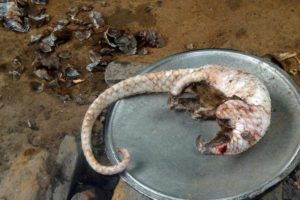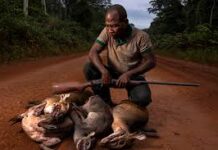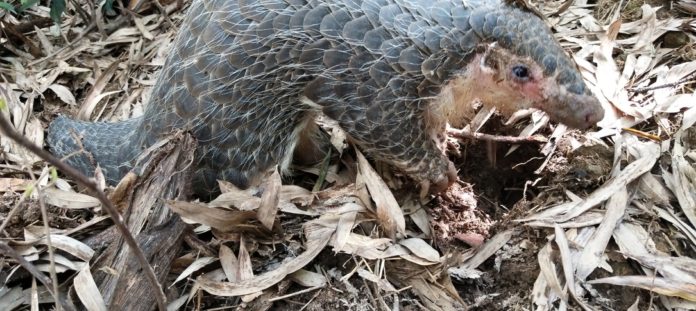Liberia joins the rest of the world on Saturday February 15, 2020 to celebrate World Pangolin Day, the first of its kind at an occasion expected to be graced by conservation partners and several foreign diplomats at the Duport Road Junction in Monrovia.
The program begins with a parade from the SKD Boulevard to the Duport Road junction to include the participation of 4 schools in the Paynesville belt.
It basically aims to highlight the need to protect and conserve pangolins consistent with the new wildlife law passed in November 2016 that prohibits the illegal hunting, possessing, trading and killing of protected animals, amongst which pangolins rank key.
The science and Conservation officer at Society for the Conservation of Nature of Liberia (SCNL), Jerry C. Gateh and alongside other conservationists are expected to grace the occasion.
Background of Pangolins
Fresh research indicates that there are 8 species of pangolins in the world (4 in Asia, 4 in Africa) including White-bellied pangolin (Phataginus tricuspis), the Black-bellied pangolin (Phataginus tetradactyla) and the Giant Pangolin (Smutsia gigantea). Liberia is home to 3 of them.
Because the Asian species are already close to extinction, many pangolins are being poached all over Africa to be shipped to Asia (mostly China and Vietnam), where they unrightfully believe the scales of the pangolin serve medical purposes and where the meat is considered a delicacy. This makes pangolins the most illegally trafficked mammal in the world.
Their scales are wanted more than rhino horn, elephant tusks or tiger parts combined.
Illegal trade of pangolins
According to researchers’ estimate 1 million pangolins have been illegally traded in the last 16 years and given the current increased scarcity, it has been difficult to estimate current populations of the 8 pangolin species. However, international pressure has mounted to prevent the pangolin’s extinction. A few years ago, at CITES’ Conference of the Parties, where the world’s conservation agencies meet, pangolins received appendix I protection.
Appendix I means the highest level of protection offered by the organization and urges the 183 affiliated nations to enforce the strictest possible conservation measures. In Liberia, all pangolins are protected by law: it is a federal crime to hunt, kill, eat and keep them.
All confiscated pangolins are brought to the Libassa Wildlife Sanctuary. The Libassa Wildlife Sanctuary, in collaboration with the Forestry Development Authority, is the first and only wildlife rescue center for different animal species in Liberia and was founded in 2017.
Their main mission is rescue, rehabilitation and release of confiscated protected animals. So far, 52 pangolins have entered the sanctuary and 34 have been released back into the wild!
Pangolins threatened in Liberia
Known as ants’ bag in Liberia, many Liberians see the Pangolin species as one of their main sources of nutrients because of its fleshy meat.

The animal is illegally hunted in almost all parts of Liberia especially rural inhabitants who use it for meat and sometime trade the scales.
Pangolins play an important role in keeping the forest healthy: “They are the only mammal in West-Africa to control ants and termite populations. “Without pangolins, the forest we rely on for oxygen and timber will be destroyed”, said a Liberian biodiversity conservationist.























Comments are closed.